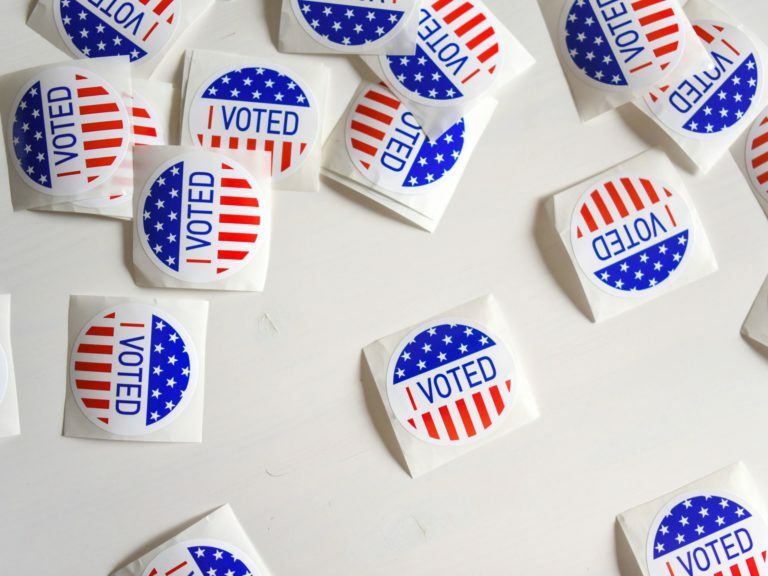Black History month is an annual recognition of the history, achievements, and influence of the Black community. And every February, brands and agencies across the United States launch marketing campaigns to recognize and include their diverse audiences. For good reason – Black History Month provides the opportunity for brands to take part in important cultural moments with thoughtful campaigns.
However, championing the Black community is not simply a to-do list item to be checked off once a year; it’s an orientation that should be integrated into a brand’s identity all year round.
If you’re planning your Black History Month campaign, consider letting the month be a catalyst for both creating authentic campaigns that reach Black consumers during the month, as well as weaving cultural diversity and appreciation into the fabric of your brand for the rest of the year.
As leaders in the multicultural marketing industry for over three decades, we’re here to provide a few guidelines for success and a handful of Black History Month marketing ideas that will make your target Black consumers feel seen, understood, and supported.
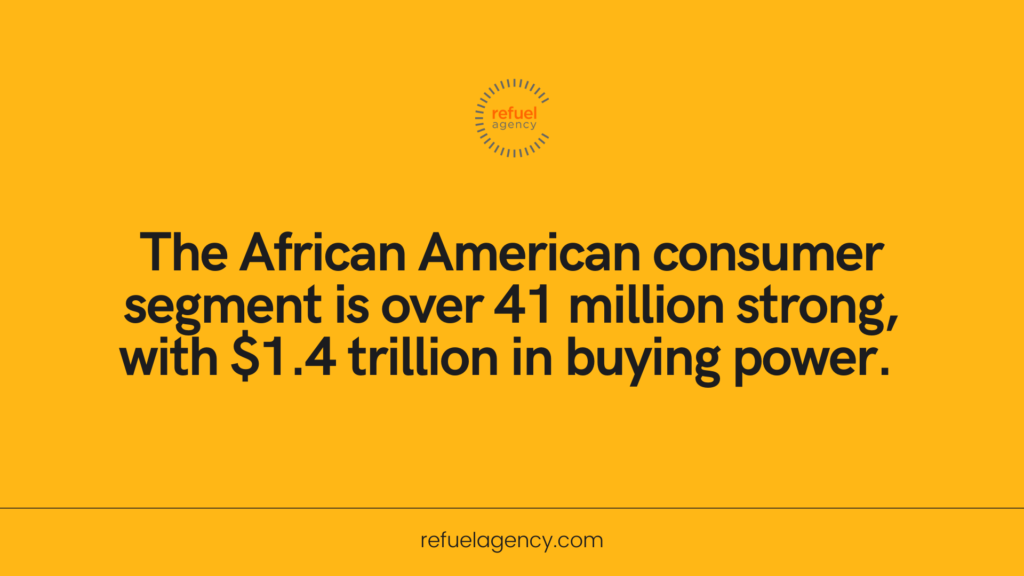
Read next: 3 Things Smart Marketers Know About Young Black Consumers
What is the purpose of Black History Month?
In 1976, President Gerald Ford officially recognized Black History Month, noting that it was time to “seize the opportunity to honor the too-often neglected accomplishments of Black Americans in every area of endeavor throughout our history.”
The purpose of Black History Month is to share, celebrate, and understand the impact of black culture, history, achievements, and heritage. It provides an opportunity to learn more about Black stories, experiences, work, impact, and cultural contributions.
A Black History Month campaign example that missed the mark: Barnes & Noble
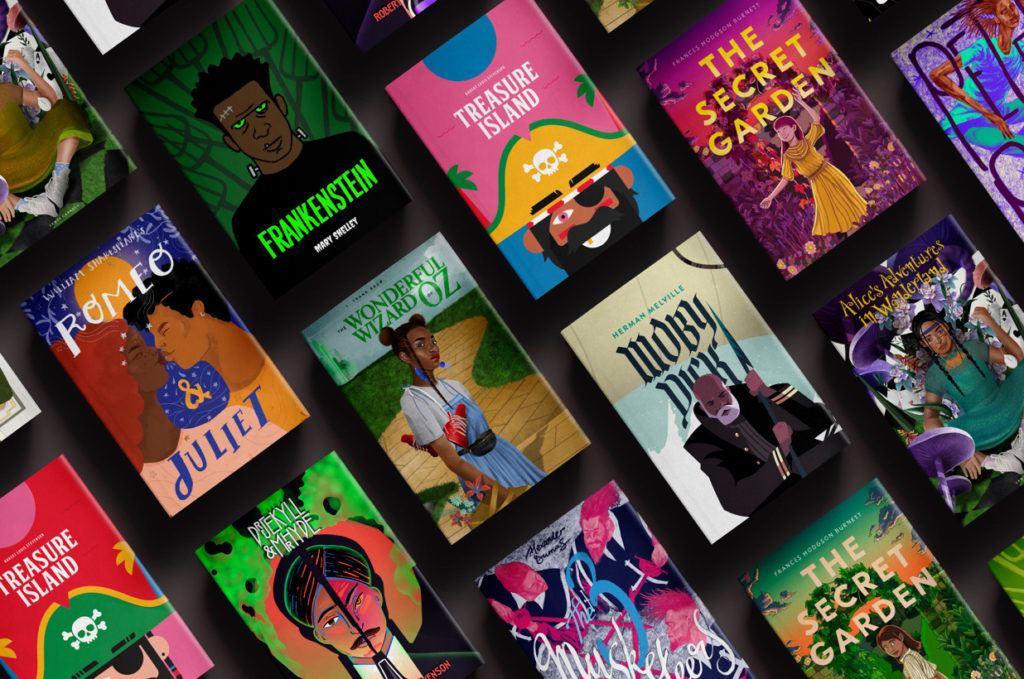
The most cited Black History Month ads that just didn’t cut it was Barnes & Noble. Barnes & Noble launched a campaign featuring reimagined book covers with African American characters, including Moby Dick, The Wizard of Oz, and Peter Pan.
However, backlash swiftly ensued once the campaign went public. The overwhelming sentiment was that celebrating Black history was not achieved by featuring the books of white authors with Black faces on the covers. There are an abundance of Black authors that Barnes & Noble could have spotlighted and driven success to, but by not doing so, they missed the opportunity to build relationships and support their diverse community.
Barnes & Noble missed the mark on the campaign because it failed to advance the intended mission of Black History Month: the history, role, and accomplishments of Black Americans in U.S. history and culture.
Read next: Don’t Make This One Marketing Message Mistake
A few of the best Black History Month marketing campaigns
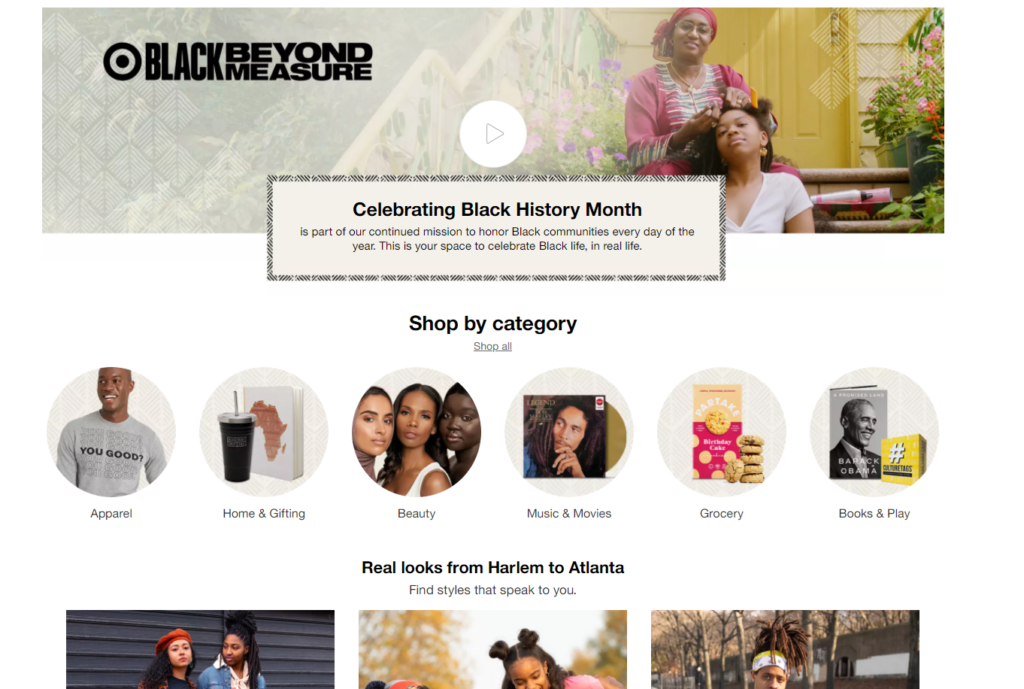
Target
Target, on the other hand, nailed it with their Black History Month campaign by highlighting a collection of books by Black authors, featuring stories of Black characters, and other products that were designed by Black creators. On Target’s website, they explained their thought process for celebrating:
“Throughout the month, Target is also shining a spotlight on products from Black-owned businesses that are carried in our stores year-round. One-third of Black History Month products are from Black-owned businesses… and more than half are exclusive to Target. This year’s Black History Month marketing campaign, Black Beyond Measure, also features Black entrepreneurs and Target team members. The campaign was designed to amplify success stories and celebrate Blackness, an uplifting sentiment to empower future generations.”
Nike
Nike has been able to easily amplify Black voices during Black History Month through cultivating lasting affiliations with Black athletes and influencers.
In 2022, they leveraged many of these partnerships through a powerful cross-channel content marketing strategy. Participants included swimming sensation Simone Manuel, basketball’s talent Diandra Tchatchouang, and tennis superstar / mental health advocate Naomi Osaka.
By pulling together a mix of both mega-influencers and athletes with dedicated followings, Nike has been able to create Black History Month campaigns that feel authentic, integrated, and long-term.
Here are our top tips for crafting Black History month social media posts and integrated campaigns this year:
Make the audience the hero
Since the 2020 resurgence in activism and conversations about anti-racism, many brands have chosen to evaluate their part in conversations and action and make key changes. Your brand’s Black History Month campaigns have the ability to act as an extension of the work done to promote diversity and create genuine connections with your audience.
The first step in creating a Black History Month campaign that truly celebrates Black history, culture, and communities is to make the African American consumers the hero. If you can incorporate your brand or product into your campaign in a way that makes sense, like Target did, then all the better. But your primary objective should not be to promote your brand or product. Start with your audience — celebrating Black history — and build your campaign from that foundation.
Michelle Ngome, President of the African American Marketing Association and Line 25 Consulting, suggests that, “Finding ways to correlate history from a past to present perspective can lend to positive feedback. Nike does a good job with their ad campaigns on tying in past, present, or athletes from all backgrounds.”
Read next: African American Consumers Are Driving Change In These 3 Markets
Bring in diverse team members to shape campaigns
When crafting your campaign, cultural intelligence should be a priority in order to avoid sending out tone-deaf messages that inevitably fall flat. The best way to ensure your campaign is authentic and intelligent is to include your diverse team members in the creation of your campaigns, or hire out third-part counsel from agencies or consultants.
For their Black History Month campaign, Target worked with their African American Business Council (an employee resource group of more than 1,000 team members) to help create their messaging and select which products to feature.
“If a company is truly diverse and inclusive, find creative ways to acknowledge Black employees that have made an impact in the company or community within the past year,” advises Ngome.Adobe also served as a great example of brands tapping into Black leadership – they leveraged their own Black Employee Network to create a multifaceted campaign, choosing influencers that resonated with the Black community.
Pass the mic
The best way to truly celebrate Black History Month is to “pass the mic” – in other words, using your platform to amplify and elevate Black stories, in their words. This is a powerful way to help Black communities, creators, authors, activists, and entrepreneurs share their story with your audience.
One way to do this is through Instagram takeovers, where Black creators take over your platform to spread their message through your followers. This principle could also be applied to other marketing channels, like your email, blog, or website.
For example, Selena Gomez let various activists and thought leaders take over her account, giving them the ability to reach her millions of followers.
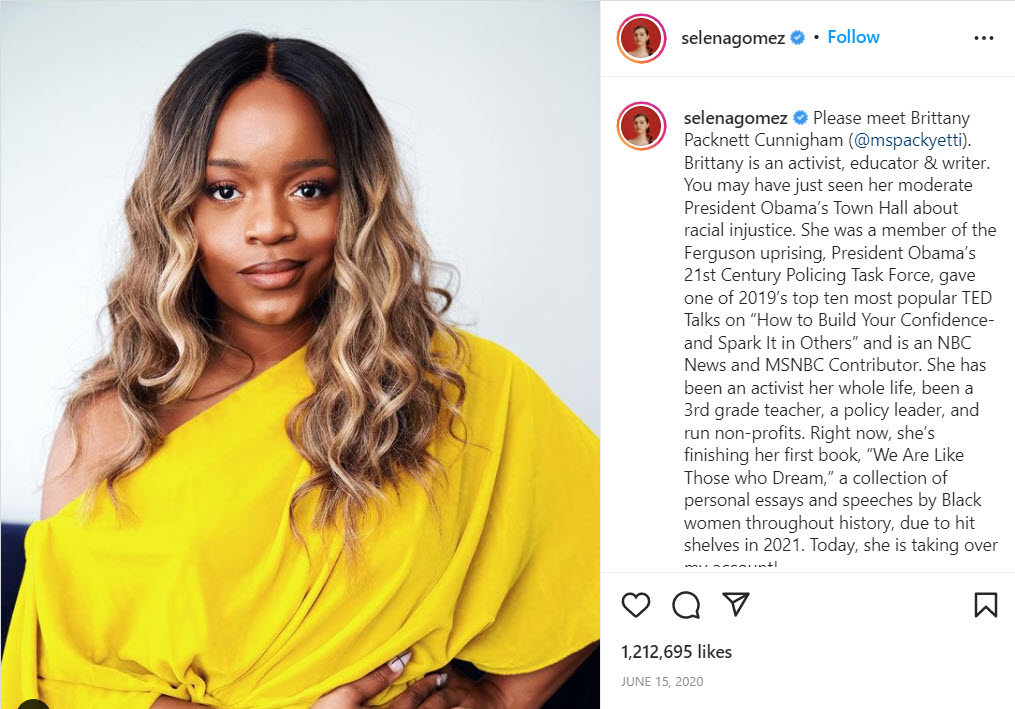
Celebrate diversity and inclusion all year round
Representation year-round is a major factor when trying to authentically reach communities of color. According to a 2019 survey from Adobe, 34% of U.S. consumers stopped supporting a brand because it didn’t represent their identity (race, religion, sexual orientation, etc.) in its advertising. In order to trust and relate to your brand, consumers want to see that you care about who they are, and that your product is for them. Build relationships, don’t just sell products.
Inclusive marketing is the right thing to do for your business. And when it comes to crafting authentic campaigns that achieve your objectives, there is no substitute for getting to know your customers — their dreams, desires, fears, and frustrations at a deep level. Any group you’ve deemed as a valuable customer for your brand should know that you’re cheering for them and supporting them in achieving success, whatever they’ve defined that to be.
Launch your African American marketing campaign
At Refuel Agency, we’ve been working with the African American community for over 30 years — investing in proprietary research to understand the market and delivering unmatched ROI for our clients looking to reach this target audience. Contact us today to get started with your custom African American advertising plan.




